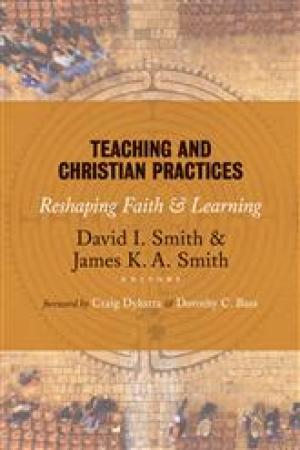Resources
Wiebe argues that the relationship between theology and religious studies is more compicated and interrelated than most acknowledge.
Podcast: Conversation ranges from the public perception of what Religious Studies does, what to do with a RS degree, to the financial practicalities of doing postgraduate research in the UK and US today.
The author recounts his experience, as a young observant Jew, of James Kugel's academic biblical studies course at Harvard. The piece focuses specifically on how Kugel reconciles his religious faith  with his academic understanding, and how Jewish biblical scholars disagree with one another on what is involved in such a reconciliation. May be of special value for Christian learners undergoing a similar disruption, located as it is "safely" in a non-Christian context.

Over the past twenty years there has been a ferment of reflection on the integration of faith and learning -- yet relatively little notice has been paid to the integration of faith and teaching in the Christian university. In Teaching and Christian Practices twelve university professors describe and reflect on their efforts to allow historic Christian practices to reshape and redirect their pedagogical strategies. Whether using spiritually formative reading to enhance a literature course, table fellowship to reinforce concepts in a pre-nursing nutrition course, or Christian hermeneutics to interpret data in an economics course, the authors present a practice of teaching and learning rooted in the rich tradition of Christian practices -- one that reconceives classrooms and laboratories as vital arenas for faith and spiritual growth. (From the Publisher)
Alluding to several then-recent episodes of professors being forced from posts at evangelical institutions of learning, Enns asks whether schools dedicated to defending propositions grounded in private revelation and confessional dogma can be "truly academic" (and truly just to their instructors and students).
A useful 2016 teaching piece for students of faith adjusting to academic religious studies. In this blog post, Tabor addresses the objection, often raised by students or religious laypeople, that (biblical) historians "exclude the miraculous" in their investigations. Not "suppressing" claims of the supernatural (e.g., miracles), historians welcome all such claims as contributing to our understanding of times and events, but refrain from adjudicating such claims beyond what is accessible to historical means.
In this excerpt from Kugel's controversial "How to Read the Bible," the author argues—with rich citation and documentation—that academic biblical studies is rife with an "unmistakably apologetic tone" of which even its most self-avowedly "critical" practitioners are largely unaware. The implication is that academic biblical studies, practiced as it is overwhelmingly by people of faith, does not achieve the honesty about the texts' "strangeness" characteristic of other corpus-oriented disciplines. (2014)
Podcast discusses that there is a "socio-political strategy" behind the claim that religion is 'sui generis'
Podcast interview of who should be teaching religious education (what in the US is called "religious studies") and what it should entail at the primary and secondary levels in Great Britain.
Religious studies suffers from the outside threat of less and less funding like all the humanities and from the inside challenge that religious studies is simply an ideology. Schneider argues that the religious studies major "needs to grow up" and learn to articulate what it is good for. He articulates several of these goods.